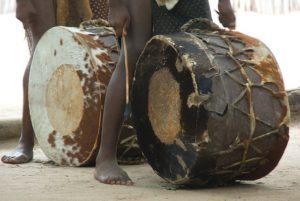
The chaos of the present election cycle calls to mind a story about the great African king, Shaka (1787-1828), the founder of Southern Africa’s Zulu Empire.
It is told that Shaka lamented the slowness of his warriors when they entered into battle. To remedy the problem, he ordered them to take off their sandals to make their movements lighter and faster. He also noticed the softness of the warriors’ bare feet and sent them to a parade ground, which was covered with thorns. He then ordered the barefoot troops to march on the thorns to toughen their feet.
When he noticed the fighters were reluctant to tread on the thorns, he ordered them to march and sing with utter disregard for their pain. They were required not only to march but to do so with enthusiasm on Shaka’s field of thorns.
The barefoot warriors are a fitting image to express the plight of many voters in the coming elections. They are being asked to take off the protective sandals of their principles and not only march upon but to embrace enthusiastically policies, personality traits, and contradictions that they find abusive and painful.
[like url=https://www.facebook.com/ReturnToOrder.org]
That is what makes these elections different. There is something brutal about them that makes all uncomfortable. We can argue about the size of the thorns but not the fact there are thorns upon which we must tread. We are no longer asked to do the usual hold-our-noses-and-vote routine, but enthusiastically bloody our feet and make painful choices, not unlike those on Shaka’s field of thorns.
In all fairness, this new situation cannot be blamed entirely on any one candidate. We are seeing what many are calling the end of the liberal democratic experiment caused by the erosion of its foundations. In the words of scholar Yuval Levin, we are a fractured republic, where no one party controls the narrative. The mediating institutions that once allowed for civil debate are wearing down. The unifying principles that set the groundwork for a governing consensus no longer unify. The careful system of checks and balances no longer work.
In its stead, there is a restless spirit of what might be called frenetic intemperance in which people want everything instantly, effortlessly, and without consequences. People have no patience to wait for solutions to complex problems and are irritated with rules and restraints.
In such a political climate, the temptation is to take off the sandals of principles and civility and enter into a brutal brawl in which procedures, principles, and institutions are deemed irrelevant.
On the liberal side, for example, this denial of rules can be seen in what is now being called the “totalitarianism of tolerance.” Activists ram their agenda down the throats of those who oppose them respecting no conscience, religious conviction, legislative process or bathroom choice. For a long time, we have seen this totalitarianism in the brutal irrationality of political correctness that ridicules and ruthlessly persecute those who safeguard common sense and morals, but now it is pervasive.
We observe this impatience on the conservative side with calls to abandon the Culture War and embrace a pragmatic approach to returning the country back to prosperity. Many conservatives who have long donned the sandals of time-honored moral principles are being asked to take them off and march enthusiastically as if on Shaka’s field of thorns.
The result is a situation where many conservatives feel they are not given a choice. They feel abandoned. All that is left to them are their principles. There is doubt about what to do.
The answer to conservative doubts can only be to do what we have always done: stand by our principles, regardless of the elections’ outcome. Politicians change with the wind, but these principles do not change. Moving forward, the only certainty we can have is that the grueling fight for the culture will intensify in coming years.
Even though we face daunting obstacles and suffer from our shortcomings, we must continue to defend those things that have always defined us as conservatives. That means we must do everything possible to protect the unborn, stand up for the traditional family and uphold moral standards. We must defend a moral code based on the precepts of the Ten Commandments. We must protect our nation and its borders and stand by our commitments to international security. We must strive for sound monetary and fiscal policies sustained by restraint and virtue that will thus secure our stability and prosperity.
We will gladly fight upon this three-fold battlefield of culture, fiscal responsibility, and national defense as we have always done, but do not ask us to march barefoot and bereft of principles as if on Shaka’s field of thorns.
And what if our principles do not prevail? Then we will have recourse to a God that never fails. He will see to our eventual victory or mitigate the defeats that our nation’s iniquities bring upon us.
 Some might object that such a vision does not consider today’s political realities. We need to adjust to the way things are, not the way we believe they ought to be. Brutal times call for strong measures that are not always pleasant.
Some might object that such a vision does not consider today’s political realities. We need to adjust to the way things are, not the way we believe they ought to be. Brutal times call for strong measures that are not always pleasant.
We would reply that our principled stands are the only things strong enough to defeat brutal realities. After the whirlwind of unbridled passions runs its course, our principles alone will stand as the best of what we have. That is why we must fight for them intelligently, energetically, and with all dedication. In the final analysis, when conservatives surrender their principles in the name of political expediency, they enter on the quickest road to defeat.
There are also dangers involved when marching on thorns. It brutalizes a people and makes them capable of the worst barbarities. That is not to say that brutality does not get things done. It does, but that cannot be our model.
Indeed, Shaka went on to become a mighty king who created a highly mobile barefoot fighting force. Nicknamed the “Black Napoleon,” he devastated all of Southern Africa. An estimated two million people died in the wake of the conquests that started on Shaka’s field of thorns.
As seen on crisismagazine.com


